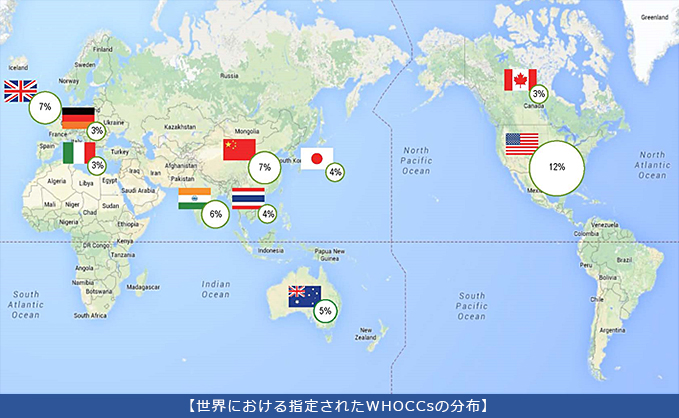What is WHOCC?
A WHO collaborating center (WHOCC) is defined as “an institution designated by the Director-General to form part of an international collaborative network carrying out activities in support of the WHO’s program at all levels.”
WHOCCs have been designated since the establishment of WHO. The first institution designated was the Department of Biological Standardization at States Serum Institution in Copenhagen in 1948. As of 2012, WHO’s network of WHOCCs brings together more than 800 highly regarded academic and scientific institutions in over 80 countries, supporting WHO programs and priorities with time, expertise and funding.

The majority of designated institutions are departments or units of universities, laboratories, research institutes, hospitals, ministries, or national academies. All of them have a long and successfully history of carrying out jointly planned activities with WHO prior to being designated.
WHOCCs work on a diverse range of subjects, across all of WHO’s technical programs. Their activities include, for example, carrying out research for WHO, assisting in the development of WHO guidelines, gathering and analyzing data for WHO reports, dissemination of information, providing a training course by request of WHO, standardization of terminology, or provision of technical advice to WHO.









